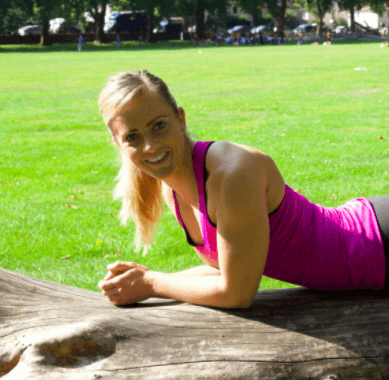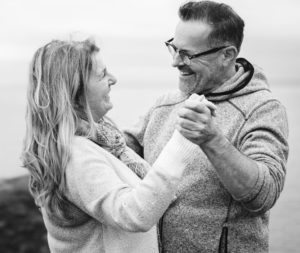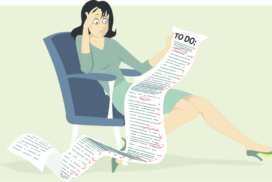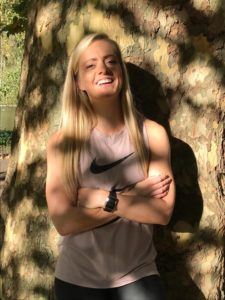 Guest blogger Katie has over 15 years of experience in the health & fitness industry working with a wide range of clients from children to professional athletes. After completing her BSc (Hons) Nutrition degree Katie worked in Community Health for the Local City Council and now works with the UK’s leading PT, Matt Roberts.
Guest blogger Katie has over 15 years of experience in the health & fitness industry working with a wide range of clients from children to professional athletes. After completing her BSc (Hons) Nutrition degree Katie worked in Community Health for the Local City Council and now works with the UK’s leading PT, Matt Roberts.
After supporting her mother through the journey of menopause, Katie studied the biochemical and behavioural aspects of the ageing process. A strong belief that there is more to weight loss than a simple calorie in vs calorie out approach, external factors such as sleep quality, stress management and hormonal health must be taken into consideration.
Katie found her niche and true passion in supporting women over 40 to find their energy, regain their confidence and love what they see in the mirror.
Why move your body more…
The benefits of exercise really are endless. We so often hear about how we need to exercise to lose body fat, but we often forget to acknowledge the other benefits. As we age our body breaks down muscle and bone quicker than we can repair or reproduce it, therefore exercise plays a key role in maintaining strong muscles and healthy bones into our later years. Not forgetting the feel-good hormones (endorphins) that are released after exercise can have such a positive impact on the rest of your day. Not only do you feel great, you’re more inclined to eat well, get a good night’s sleep, stress less, smile at a stranger, be calmer with your partner or children – almost sounds too good to be true!
“Exercise stimulates blood flow around the body, including the vaginal area, and makes you feel good in general. When we feel good and feel worthy, we feel more confident and therefore more desirable and sexual with our partner.”
So, if you’re feeling the effects of vaginal dryness, this may be the missing piece to your puzzle and with all the benefits mentioned above – you really do have nothing to lose!
So, where to start with exercise through menopause?
First off, if you are still engaging in forms of exercise that you do not enjoy, stop. Stop that right now!!
There are so many beautiful forms of exercise and body movement – there is something out there for everyone. Give yourself the time to discover what forms of movement feel good for you. Choose to move in ways that make you feel a heart-warming combination of strong AND sexy. Move in ways that light you up, not in ways that societal conditioning has said you “should” move i.e. going to the gym.
“Although it’s often the last thing we feel like doing – especially when we’re lacking in energy for everyday tasks and feeling a little sorry for ourselves – getting moving is a great way to show ourselves self-care.”
You don’t need a pricey gym membership to exercise either. You can dance in your bedroom to your favourite songs, follow along with free fitness videos on YouTube, or you can simply pop some trainers on and head out for a walk or run. Exercising outside has additional benefits too, particularly for women and reducing stress levels.
Another useful tip is to schedule your movement in your diary and make it a priority – cancel in life or death situations only. If you’re hungover on the sofa feeling sorry for yourself because you indulged in one too many glasses of wine the night before (we all deserve those nights) – stand up, give yourself a shake and remember why you started this journey in the first place.
And how could you be moving?
Below are some examples of ways you can move your body through menopause:
Gentle/brisk walking
Light jogging
Home workouts
Gym Classes
Hiking
Yoga/Pilates
Tai Chi
Tennis/Badminton/Squash
Swimming
Dancing
Skating
Cycling
Bowling
Once you have an exercise schedule that works for you and becomes a part of your weekly routine without even thinking about it (let alone dreading it). The next factor to look at to survive and thrive through menopause is your food and eating habits…
And what about eating habits?
We need to fail-safe your food and by that, I mean don’t wing your eating habits and hope for the best, we all need some form of a plan. Some people respond better to an in-depth detailed food plan where you track and measure your food. Others people prefer a softer approach that focuses on improving habits. Either or can work depending on the person and their current lifestyle.
“My first suggestion to improving your food would be to keep a food diary for 7 days of everything you eat and drink and not what you think you should be eating, but rather what your general week actually looks like – no cheating, remember you’re only lying to yourself!”
This task alone often highlights to people what they can improve on e.g. eat more fruit and vegetables, eat less takeaways, drink less alcohol, drink more water. Improving these habits alone can yield great results, but they have to be done consistently. Therefore, whatever habit change you choose to start with make sure you can sustain it, whilst still having a life and not feeling too restricted by your new habit/s. If this task doesn’t shed much light, I suggest you ask a friend or food fanatic to have a look at your food log and I’m sure there’ll be a few suggestions to get you started.
To track or not to track…
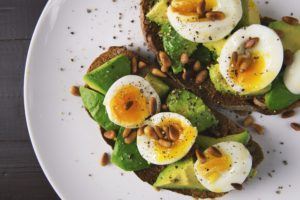
If tracking doesn’t tickle your fancy, then I urge you to have some form of plan in place. This could be following a diet plan from a friend or colleague (might not necessarily be the best for you but a great place to start). A diet high in protein (chicken, turkey, lean beef, eggs, yogurt) and good fats (nuts, seeds, avocado, soy) will support the body’s essential systems including hormonal function.
Top tips: Eating good fats, drinking water and planning ahead
Contrary to that a low-fat, high-carb diet literally starves your body of the nutrients it needs to make sex hormones.
“The oestrogen needed for vaginal lubrication is made from cholesterol — often severely lacking in women on low-fat diets, so make sure you’re eating your fats ladies!”
It’s also worth mentioning that the majority of people are dehydrated and this can have a profound effect on energy, mood and skin. Put a stainless-steel water bottle on your list and make a promise to yourself to get through at least 2 litres each day. Build it up slowly, and make a habit of starting each day with at least 500ml of water to get the ball rolling.
Another useful tip I often use with my clients is having high and low calorie days with a similar concept to the 5:2 diet or intermittent fasting (*google time*). On the days that you exercise you can have a higher calorie day and if you have a more sedentary day, that would be your lower day as you wouldn’t need to consume as many calories. Start simple with something like vowing to eat healthy and hydrate accordingly on a Sunday (leaving Friday and Saturday to have fun with).
A rule I personally live by no matter what plan I’m following or what country I’m residing in – never go to bed not knowing what you’re going to eat the following day. The food may not be prepped and cooked (like most fitness fanatics) and some ingredients may not have even been purchased, but a plan is in place and over my dead body will I verve from it (that’s for weekends only). It’s a basic plan – but it’s a plan, and we all know by now that without a plan we’re left to wing it, and winging it leads to wobbles (in mind and body).
_____________________________________________________________________________________
If you’d like to know more about the work I do with menopausal women, please contact me through one of the options below and I’d love to find out a little more about you too.
Join the FREE Facebook for support and advice on how to tackle menopause, simply copy the link below into your browser or search for “Menopause Mastermind” https://www.facebook.com/groups/552153835142282/
Book a FREE support call by emailing me on [email protected]and find out how we can work together in a group or 1:1 program with like-minded women on the same journey of self-discovery and managing menopause.
Alternatively send me a message on Facebook @katiemorrisfitnessand let me know what you thought of this book and any additional ways that I can help support and guide you through your journey.
